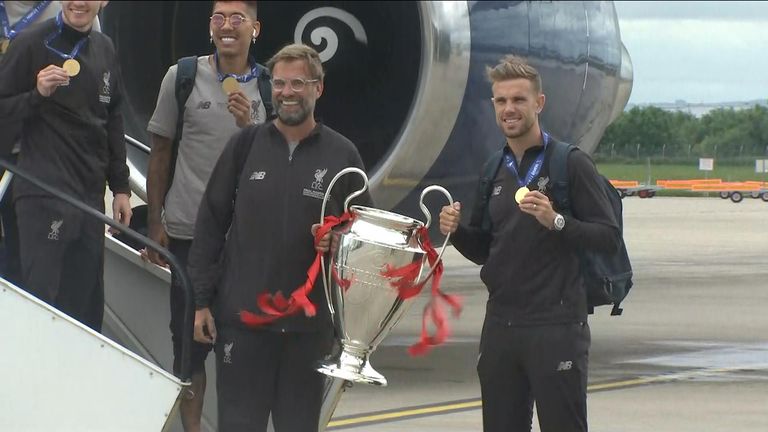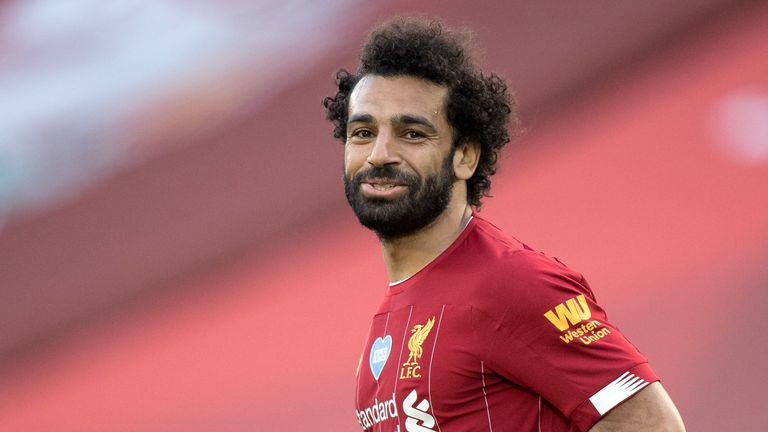You wait 30 years for another top flight title and when it does come along, it's in the middle of a worldwide pandemic, eventually sealed by another team playing in an almost empty stadium 220 miles away.
The circumstances of this title victory are utterly bizarre but should not detract from the achievement, because anyone sensible knows the trophy belonged to Liverpool long before lockdown.
No ifs, no buts, no asterisks. This is one of the greatest teams the Premier League has seen – if not the single greatest.
Its supporters have spent the last three decades imagining the feeling of lining the streets in the hundreds of thousands, their heroes parading by on an open-top bus, through the city centre and past the Liver Building, skirting the banks of the River Mersey, domestic champions once more.
Coronavirus means that is impossible, however. Official celebrations will be muted but it does not dull the sense of pride felt in the red half of Liverpool, where many were not alive when the Reds won the old first division in 1990.
Advertisement

Waitress Amy Douglas, 28, from Formby, is one of them. As a season ticket holder, she is consumed by mixed feelings.
"I keep bursting out crying," she says, "I'm excited, I'm completely delighted. But it is heart breaking, too, watching the games on TV with all that fake crowd noise. It's that feeling of 'I should be there'. But hopefully we can do it again next year without COVID-19."
More from Liverpool
To understand what this title means, you have to be in Liverpool, to feel how football pulses through the city, both binding and dividing it.
I got a taxi from the train station a few months ago and the female driver, a part-time beautician, needed no prompting, "Jurgen Klopp," she said "we just love him, he's one of us now. The men want to be him and the women want to sleep with him."

The 53-year-old from Stuttgart, with the magnetic charm and high-resolution smile, arrived in Merseyside four years ago as the hottest property in football management and has more than justified the billing.
He has made smart purchases – notably in Mohammed Salah and Sadio Mane, two of Liverpool's brightest stars – but he has also invested time in the academy, demonstrating a much heralded adeptness for recognising and nurturing young talent.
Trent Alexander-Arnold grew up five minutes' drive from Liverpool's Melwood training ground. He turned 17 one day before Klopp took over and is now a mainstay of the team, his perfectly placed free kicks earning warranted comparisons with David Beckham.
The area immediately around Liverpool's Anfield stadium, with its back-to-back red and yellow brick terraced housing, is undergoing regeneration but remains one of the ten most deprived neighbourhoods in England.
Here, football offers an escape from the often harsh realities of everyday life and residents delight in Alexander-Arnold. He is a genuine homegrown success story – an increasingly rare commodity in football.

On the wall of one of the end terraces is a three-storey mural of the right-back, who has proven himself to be not just one of English football's most prized youngsters but also an ambassador for the local community, volunteering for charities that deliver food parcels in his spare time.
The young star, who is mixed race, has also been an outspoken advocate of ending discrimination in football and society, saying the situation has been "too wrong for too long" – a frankness encouraged by his manager.
Comparisons will naturally be made with the last Liverpool team to triumph in the top division, back in April 1990, with two games to spare.
Of the current squad, only four – James Milner, Adrian, Dejan Lovren and Adam Lallana – were alive at that time.
Liverpool have won the Champions League twice and three FA Cups in the intervening period but the long wait for this one makes it the sweetest of all.
In 2014, Liverpool's charge towards the title was derailed by a now infamous slip by then-captain Steven Gerard, who is still haunted by the moment.
[contf]
[contfnew]

sky news
[contfnewc]
[contfnewc]





